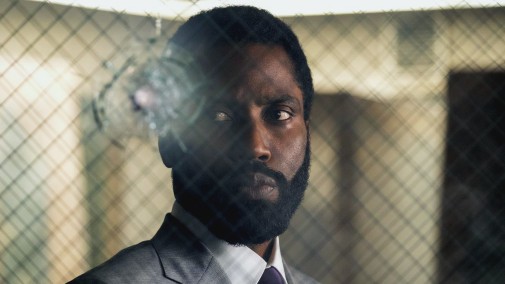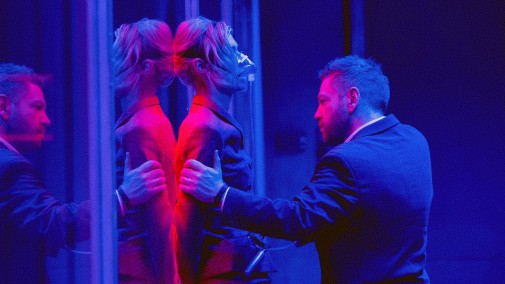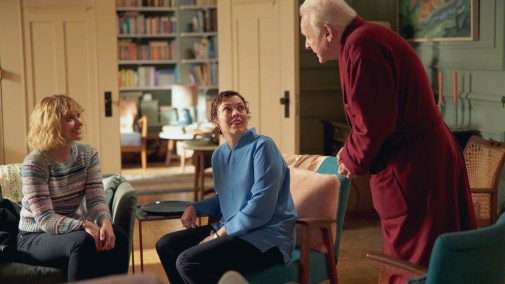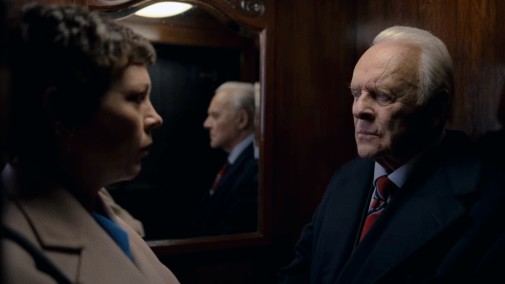Best Editing: The Art of Disorientation
 Saturday, March 6, 2021 at 3:00PM
Saturday, March 6, 2021 at 3:00PM 
There seem to be two big schools of thought regarding what good film editing is. On the one hand, classic Hollywood precepts indicate a preference for the invisible, cutting so organically enmeshed with the rhythms of the story one barely notices its mechanisms. On the other hand, there's a showier style, editing that calls attention to itself and demands applause, especially in the realm of action cinema. In either case, an unwritten rule posits clarity of information and storytelling as a defining tenet. Editing should facilitate the movie-watching process by allowing the audience to follow along with the narrative or thesis, its emotional beats, spatial awareness, and chronology. Nonetheless, two of this year's biggest contenders in the race for the Best Editing Oscar do the exact opposite, choosing to engage with the art of editing as a tool of disorientation rather than clarification, chaos instead of order…
Christopher Nolan's much-anticipated and much-criticized Tenet carries the burden of great expectations and a lackluster release. I can understand people's frustrations with it and count myself amongst its general detractors. However, one must acknowledge the boldness of some of its choices as well as its admirable refusal to be read like a puzzle. When confronted with as confusing a piece as Tenet's concept of inverted entropy, there's the temptation to solve the movie's mysteries. Many of Christopher Nolan's previous successes do invite the viewer to relate themselves to the movie as one would regard a Rubik's Cube. inception and Memento are great examples. Tenet, despite its heady worldbuilding, isn't so forthcoming with an invitation. Instead, it actively tells us to just go along with it, to not think too hard, to enjoy the ride.
I'd argue the tension between these intensions and the movie's overt deconstruction of narrative structures is what damns it, much more than the tinny sound mix and ridiculous dialogue. As someone who sees cinema as an audiovisual art and who could do without the burden of narrative, to make a blockbuster meant to be felt rather than understood is very much my jam. However, this doesn't entirely cohere with the archetypal treatment of non-characters, the maze-like design of cause and effect, and other such intricate business of storytelling twisted out of shape. If you want to be sensorial ecstasy, be it. Don't make a show out of putting a screenwriting book through a paper shredder. In that regard, Tenet's an overall failure, though some of its elements manage to coalesce the two impulses.

Both the score and the editing negotiate the need for sensuous spectacle and the will to intellectualize storytelling whilst not capitulating to either side. Mostly, they do this by invoking a strange tone of fractured logic, an orderly intent that's presented like a cubist painting, all shattered perspectives melding into one. Editing-wise, this approach involves cutting Tenet as a mood piece and as an essayistic movie all at the same time, making it snappy but never completely intelligible. Jennifer Lame, a regular collaborator of Noah Baumbach, is a master of her craft and she's especially good at eliciting discomfort from the viewer. Shots often end too soon, breathing room erased to create the feeling of an out-of-control dream. Even when her choices bristled me, I felt nothing but admiration for Lame's work. It's the sort of thing you'd expect from an experimental short, not an action movie.
In Tenet, Jennifer Lame's uninterested in expressing the characters' subjectivity, being much more focused on controlling the viewer's freefalling adventure through Nolan's temporal kaleidoscope. The same can't be said of Yorgos Lamprinos in The Father. Florian Zeller's adaptation of his play puts us in the headspace of his protagonists, using canny disorientation to makes us feel closer to an unraveling mind. Watching the movie is akin to seeing a photograph's image fade over time, only we're the photograph and each disappearing hue is another context clue rocketed out of our reach. The script and performances, as well as the masterful and ever-shifting set design, help a lot but it's the cutting that truly makes The Father into one of the most viscerally upsetting films of the year, a horror movie masquerading as prestige drama.

Other filmmakers might have tried to comprehend dementia by enclosing it in a pre-formed cinematic idiom. Zeller and Lamprinos, on the other hand, re-write the rule book and construct their own grammar, shaping the film's mechanisms in the likeness of its subject and not the other way around. Watching it all work is unnerving, and every instant one feels the threat of total unpredictability right around the corner. Like our protagonist, we look around for clues to know what's going on, editing uniting characters and audience in their fruitless pursuit of clarity. We never know what's going to happen next, if we'll be jettisoned into absolute disorder or face a ghostly emptiness where crucial parts are recast, if we're going to see a nightmare of the titular character's imagination or experience an excruciating dinner through the eyes of his daughter. These pieces crash into each other and never fit like puzzle pieces, creating a growing pile of broken scenes and broken hearts.
As much as I'd like to see AMPAS embrace these risky takes on the art of film editing, they often go for a more conventional fare (Ford v Ferrari) or showstopping incompetence (Bohemian Rhapsody). Here's hoping they have more discerning tastes in this odd awards season and bestow honors upon artists who are pushing the boundaries of their craft even as they work within the strict limitations of blockbuster cinema and prestige drama. If the past few months have been anything, it's disorientating, so why shouldn't the Academy reward films that crystalize those feelings in odd rhythms and odder structures?

The Father is currently in theaters and will be on VOD starting March 26th. As for Tenet, it's widely available and you can even stream through Spectrum on Demand.



Reader Comments (3)
I personally felt Tenet was an editing mess. It seemed to be getting too high in patting its own back about how complexly it was telling what it believed was a mind-bending complex film, when it was anything but. Tenet is easily Nolan's weakest film, saved only by its cinematography and a few well-pitched performances... Debicki, Pattinson and the foaming-at-the-mouth Branagh.
Agreed on “Tenet”... I WISH I could at least point to the rhythms of the edit as a high water mark, but I found they didn’t heighten the mood or clarify the emotion. Cold and adrift, on choppy waters.
I doubt I’ll see a film as expertly edited as Quo Vadis, Aida this year. Absolutely understands the power of stillness for all its horrifying momentum.